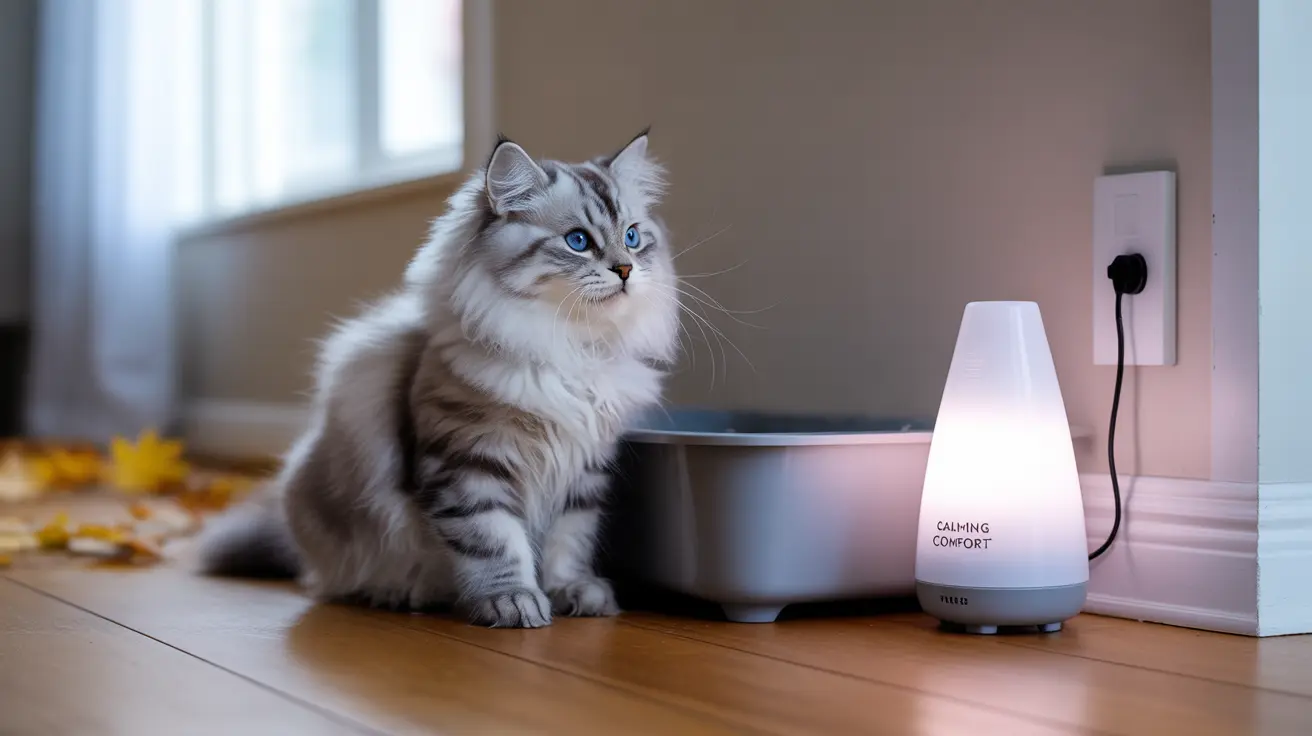When your cat starts peeing outside the litter box, it can be both frustrating and concerning. This behavior isn't just a simple act of defiance – it often signals underlying health issues, environmental stressors, or behavioral problems that require attention. Understanding why cats exhibit this behavior is the first step toward finding an effective solution.
As responsible pet owners, it's crucial to address this issue promptly, as continued inappropriate elimination can lead to household damage and indicate serious health concerns for your feline friend. Let's explore the various causes and solutions to help your cat return to proper litter box habits.
Medical Conditions That Cause Inappropriate Urination
Before assuming behavioral issues, it's essential to rule out medical causes. Several health conditions can lead to cats urinating outside their litter box:
Urinary Tract Issues
Urinary tract infections (UTIs), bladder stones, and crystalluria can cause painful urination, leading cats to associate the litter box with discomfort. Signs include frequent urination, straining, and blood in the urine.
Chronic Health Conditions
Diabetes, kidney disease, and hyperthyroidism can increase urination frequency and urgency, making it difficult for cats to reach their litter box in time. These conditions require immediate veterinary attention.
Environmental and Behavioral Factors
Litter Box Setup and Maintenance
The location, cleanliness, and type of litter box can significantly impact your cat's willingness to use it. Ensure the box is:
- Located in a quiet, accessible area
- Cleaned daily
- Large enough for your cat to move comfortably
- Filled with appropriate litter depth
Stress and Anxiety Triggers
Cats are sensitive to environmental changes, which can lead to litter box avoidance:
- New pets or family members
- Moving to a new home
- Changes in routine
- Conflict with other household pets
Solutions and Prevention Strategies
Immediate Actions
When you notice your cat peeing outside the litter box:
- Schedule a veterinary examination
- Clean soiled areas thoroughly with enzymatic cleaners
- Monitor your cat's behavior and urination patterns
- Consider adding more litter boxes throughout your home
Long-term Management
Create an environment that encourages proper litter box use:
- Maintain a consistent daily routine
- Provide multiple litter box options
- Use stress-reduction products like pheromone diffusers
- Address any inter-pet conflicts promptly
Frequently Asked Questions
Why do cats pee outside their litter boxes, and what are the common causes?
Cats may urinate outside their litter box due to medical issues (UTIs, kidney disease), stress, inappropriate litter box conditions, or territorial marking. Any sudden change in urination habits warrants a veterinary check-up.
How can I determine if my cat is peeing outside the litter box due to a medical issue or behavioral problem?
Schedule a veterinary examination to rule out medical causes first. If medical issues are excluded, look for environmental stressors or changes in your cat's routine that might be triggering the behavior.
What are some effective strategies for preventing cats from peeing outside the litter box due to stress and anxiety?
Maintain a consistent routine, provide multiple litter boxes, use pheromone products, create safe spaces, and address environmental stressors. Gradual introduction of changes can help minimize anxiety-related elimination issues.
How often should I clean my cat's litter box to prevent them from avoiding it?
Scoop the litter box at least once daily, and completely clean and replace the litter every 1-2 weeks. Some cats may require more frequent cleaning based on their preferences.
What are the best types of litter and litter box setups to reduce the likelihood of cats peeing outside the litter box?
Most cats prefer unscented, clumping litter in an uncovered box that's 1.5 times their length. Provide multiple boxes in quiet locations, and experiment with different litter types to find your cat's preference.
Conclusion
While a cat peeing outside the litter box can be challenging, understanding the underlying causes and taking appropriate action can help resolve the issue. Remember to address both medical and behavioral factors, maintain a clean and comfortable environment, and seek veterinary help when needed. With patience and proper intervention, most cats can return to regular litter box use.






